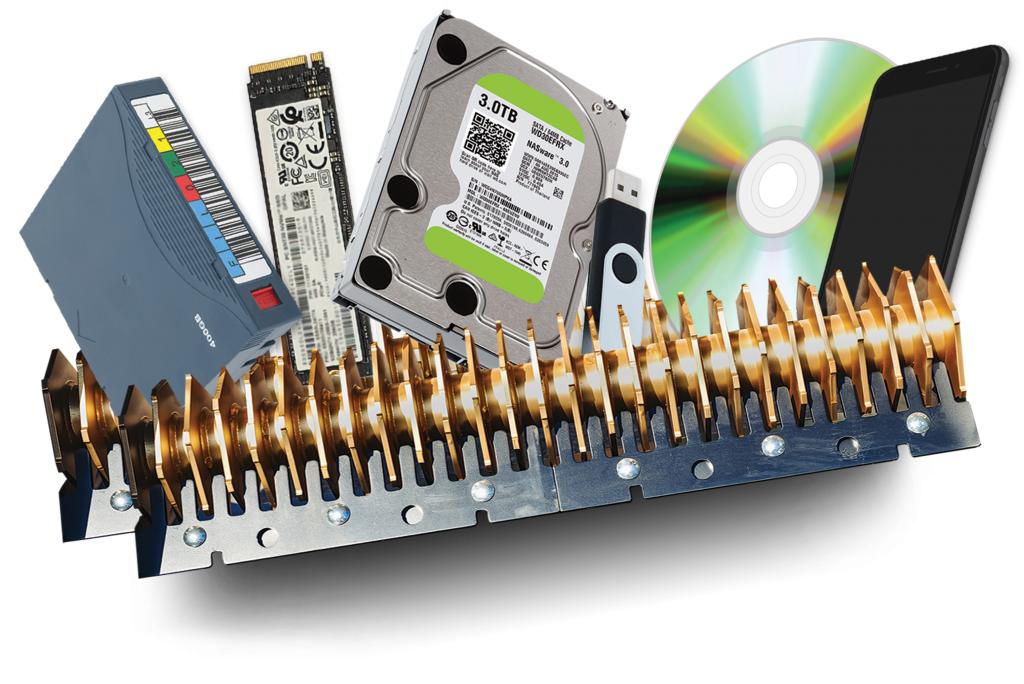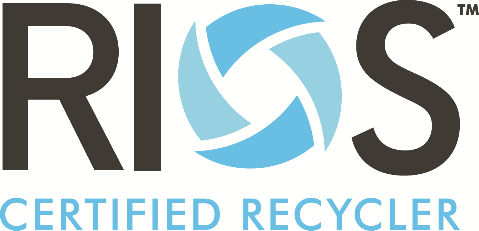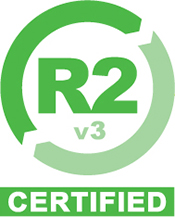What is E waste?
The Following Are All Considered E waste and Require Recycling:
E waste Recycling Philadelphia
- Computers and Computer Components
- Laptops
- Tablets
- Computer Monitors
- Telephones, Fax and Copying Machines
- Televisions and Monitors
- Audio and Stereo Equipment
- Cellular Phones
- VCRs and DVD Players
- Video Cameras
- Wireless Devices
- Desktop Printers
- Copy Machines
- Portable Hard Drives
- Thumb Drives
- DVD’s and CD’s
- Digital Cameras
E waste Recycling Philadelphia
Environmental Considerations – Where Do Your Computers and Electronics End Up?
When you dispose of computers and electronics, it is important to know that many of metals and chemical compounds used to build electronics are terrible for the environment. When we perform computer recycling and electronics recycling, none of those components or compounds will end up in a landfill – or in an overseas landfill – or at an overseas “chop shop” – or worse, in the ocean itself.
Unfortunately, all of these things can happen and do happen every day around the world. But if you work with us with E waste Recycling Philadelphia, you can rest easy knowing that we verify ALL of our downstream vendors. We know precisely where your materials end up. We verify it because we care a great deal about the environment, and we know our customers do too.
But beyond just caring about the environment – your e waste is ultimately your company’s responsibility. You have to make certain it is disposed of properly. The last thing you want is the Environmental Protection Agency (EPA) showing up at your office to begin investigating you because they found your electronic components improperly disposed of. The fines and the cost of environmental remediation can be astronomical. Where your e waste ends up matters.
Why E Waste Recycling Matters
E waste is a problem that most people and businesses did not anticipate. There is an ever-increasing appetite for new electronics, faster electronics, and better electronics. The pace at which computers, smart phones, digital devices like cameras (remember digital cameras?), and portable storage become obsolete, is unbelievable. It is estimated today that there are as many cell phones on the planet as there are people – so imagine seven billion cell phones becoming obsolete per year. Where are those seven billion used up phones (and their batteries) ending up?
All of these electronics, computers, laptops, iphones, digital cameras, monitors, screens, televisions, tablets, printers, etc, all have to go somewhere when they have reached the end of their useful life. In today’s marketplace this can easily happen in less than twelve months.
By 2016, nearly everyone old enough to have a phone in the United States (over 300 million) owned at least one phone – and half of those people also owned a tablet computer. Close to 25% also owned an e-book reader (Chart 3.2). Between 2012 and 2015, the number of Americans who owned a smartphone, AND a computer, AND a tablet doubled to 36% of adults (Anderson 2015).
Have you ever stopped to think about where all of these devices end up? Prior to reputable electronics recycling practices, computers (with hard drives intact) could be shipped overseas to “chop shops” and sensitive data could be easily compromised. And the left over parts? Those were often thrown in mass landfills overseas, or directly into the ocean where heavy metals like mercury and chemicals will pollute the water and the food supply.
Because of the sheer demand for data destruction and environmentally responsible computer and electronics (E waste) recycling, new laws have been passed to protect the environment, and several associations for electronics recyclers began springing up around the country.
This is also why Life Cycle Solutions is R2 Certified, and a member of NAID – because we believe in what these associations are doing, and we know there must be standards developed, maintained, and verified so E waste is disposed of ethically and responsibly. Otherwise, people just tend to “do whatever” which is rarely the most environmentally responsible thing.
How Big Is The E waste Problem?
- By 2016, the world generated 44.7 million metric tons (Mt) of e-waste, which is roughly equivalent to 4,500 Eifel Towers, and only about 20% was recycled through appropriate channels according to the global E-waste monitor report from the United Nations.
- Electronic equipment contains toxic materials like lead, mercury, cadmium, and many of these toxic materials will end up in the water supply (if dumped) or in the air (if burned)
- Old electronics (E waste are the fastest growing source of waste in the U.S. By 2016 over three billion electronic devices will need recycling, which is an average of close to 400 million units per year according to the Electronics TakeBack Coalition.
- It is a HUGE waste of resources. The total value of all raw materials present in e-waste is estimated to be approximately 55 billion Euros (in 2016), which is more than the 2016 Gross Domestic Product of most countries in the world.
What are the Options for Safe E waste Recycling Philadelphia?
Choose a Responsible E Waste Recycler – Look For the R2 Certification
EPA’s Certification Programs for Electronics Recyclers Website provides information on two accredited certification standards for electronics recycling: the Responsible Recycling Practices (R2) and the e-Stewards® standards.
The R2 Solutions organization reaches out to customers of electronic recyclers, providing them with information about the benefits of partnering with R2-certified e-recyclers. The organization is also a resource for recyclers, providing them with information about the benefits of being R2 certified.
The e-Steward Certification program is a new certification program that was developed by a group of North American electronics recyclers in association with The Basel Action Network (BAN) and the Electronics TakeBack Coalition (229 KB). The e-Steward certification program is an independently audited and accredited electronic waste recycler certification program that forbids the dumping of toxic e-waste in developing countries, local landfills and incinerators; the use of prison labor; and the unauthorized release of private data.
The Institute of Scrap Recycling Industries (ISRI) has developed the Recycling Industry Operating Standard (RIOS) certification that establishes best management practices for the industry.
How Can I Be a Responsible Consumer?
How to Buy Greener Electronics
You can use tools, like the EPA’s Electronic Product Environmental Assessment Tool to help evaluate laptops, desktop computers, and monitors to find out which ones are using environmental friendly practices like environmentally sensitive materials, material selection, take back programs, product longevity, energy use profile, packaging, etc. You can check these things and discover before you buy electronics what kind of impact they might have on the environment.
Manufacturer TakeBack Programs
Some manufacturers are offering TakeBack programs. They will “take back” and recycle their products. TakeBack programs create an incentive for manufacturers to design with the product’s with the end in mind and pay attention to recycling, use more recycled materials in their manufacturing processes, and reduce the use of toxic materials. The Electronics TakeBack Coalition provides a list of manufacturers that offer TakeBack programs; just click on “Corporate Responsibility.”
E waste recycling is a big deal. And it is only increasing with time and the rate at which our electronics become obsolete and need to be disposed of. You can do your part for the environment by working with reputable E waste Recycling Philadelphia companies like Life Cycle Solutions. Look for the R2 Certification, and never be afraid to ask your E waste recycling provider to explain how the verify that none of your electronics of computers will end up harming the environment once they leave their facility. We are happy to explain our processes and how we verify these things for you. We love talking about environmentally sustainable recycling of E waste.






